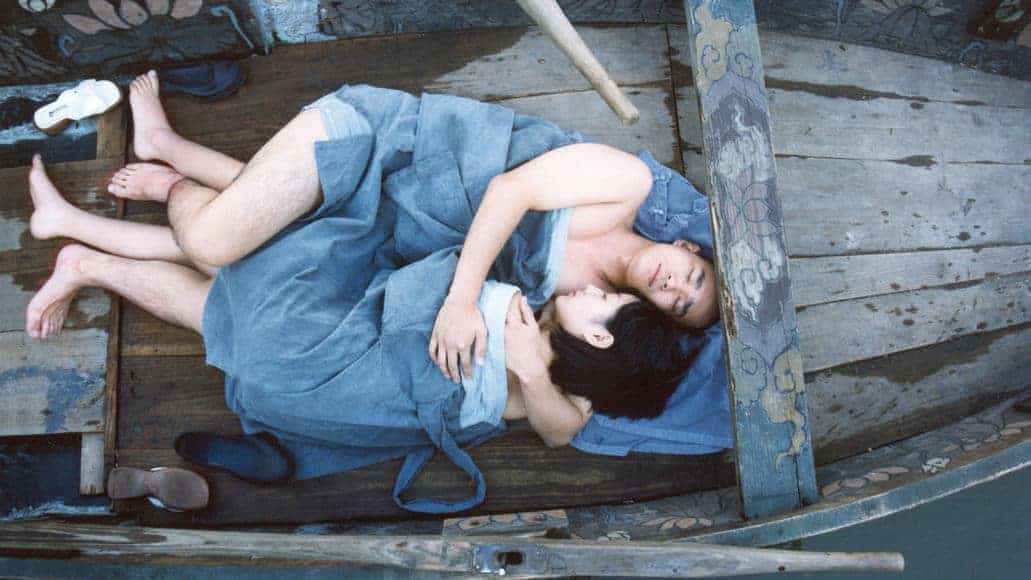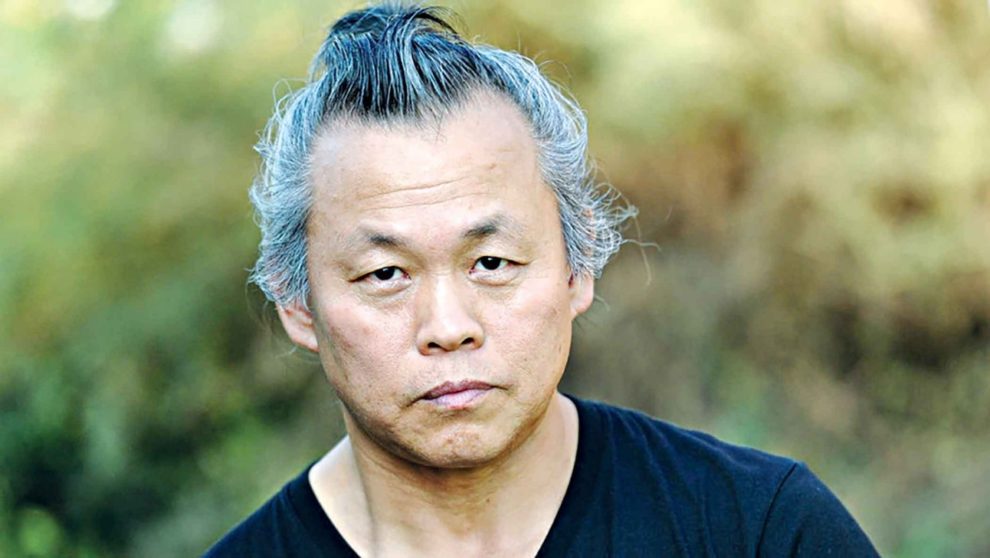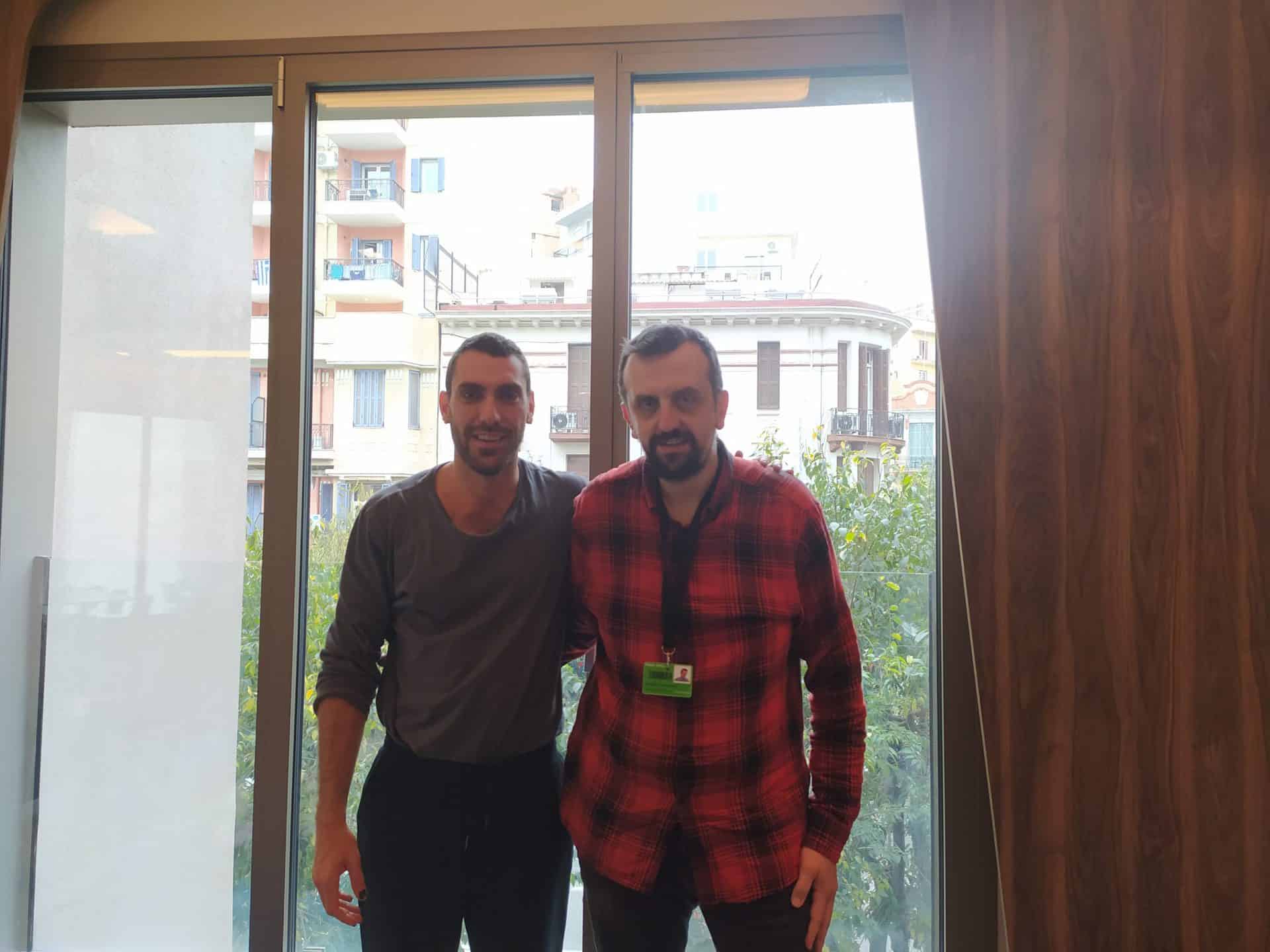The article was originally published in Estonian on Sirp
The recent death of Kim Ki-duk (20 December 1960 – 11 December 2020) in Riga, Latvia caused a rather intense reaction in the (online) cinema world, mostly revolving around the “fight” on whether he should be remembered as an auteur or as a man who attacked his actresses, with the voices for both being quite numerous and the fact that the S. Korean have been living in Europe in a sort of self-exile putting more fuel in the fire. Before we discuss his ending however, it would be interesting to take a look at where and how everything begun.
“Dissolve” which he has just finished shooting before he died would be his 25th film, including a short one he directed (along 69 more directors) for the 70th anniversary of Venice Film Festival. His long path however, had a number of twists and turns before he reached that point.
Kim Ki-duk's early life was filled with poverty since he grew up in a small mountain town, before moving to Seoul when he was 9. His father was reported to have been a disabled Korean War veteran who abused him. He was forced to quit high school when he was 15 and go to work, thus he never received formal education. After working for years in factories and sweatshops, he joined the marines and served five years as a non commissioned officer. He spent all the money he gathered to buy a plane ticket to France, where he studied Fine Arts in Paris from 1990 to 1993, supporting himself by doing odd jobs and selling his paintings. Upon his return to S. Korea, he started his dealings with the movie industry in script writing, with one of his works winning the first prize in a scenario contest held by the Korean Film Council in 1995. In the following year, he finally made his debut as a director with “Crocodile”, with the film receiving rave reviews from critics in S. Korea, despite its evident low budget.

In 1998, he directed his third film, “Birdcage Inn”, which was the one that made him known outside the borders of Korea, through its screening at the Karlovy Vary Festival. His true international breakthrough came, however, with his fourth feature, “The Isle” which screened at the Toronto International Film Festival, making him famous but also somewhat infamous in the international festival circuit. The scene with the attempted suicide with hooks and the one with the fish brought much controversy, and Kim having to respond to a number of outcries. His replies, though, were not actually apologetic, with stating on The Guardian after the British Board of Film Classification delayed the release of “The Isle” in the United Kingdom because of instances of animal cruelty: “We cooked all the fish we used in the film and ate them, expressing our appreciation. I've done a lot of cruelty on animals in my films. And I will have a guilty conscience for the rest of my life.”
His cinematic path brought him many successes, particularly in European Film Festivals, but also much outcry for misogynistic representation in his films and an almost complete lack of box office success in his home country. “Spring, Summer, Autumn, Winter … And Spring”, received raving reviews in 2003, while 2004 was his most successful year, winning Best Director for “Samaritan Girl” in Berlin and in Venice for “3-Iron”.
While his own films did not fare well in S. Korea, his scripts for other directors did, with “Rough Cut” (2008) and “Secret Reunion” (2010), both of which were directed by his former assistant, Jang Hoon, winning many local awards and having a great impact in the box office, particularly the latter.

His turn to script writing, however, was not exactly a choice. During the shooting of “Dream” (2008), actress Lee Na-young nearly choked while filming a suicide scene without proper safety equipment, with him stating about the incident: “At first the mise-en-scene was so good that I didn't realize things had gone awry. Lee fell unconscious so she actually wasn't aware of the situation, but I was so shocked I went to cry by myself in another room.” He eventually deleted the problematic scene.
The impact, however, was severe, with Jang Hoon deciding to keep his distance. When during the shooting of the 2011 film, “Poongsan” (which Kim wrote), the producer also abandoned him, Kim Ki-duk decided for his first self-imposed “exile”, retreating to a secluded mountain house. Eventually he decided to shoot a documentary of shorts while there, entirely by himself, that came to be “Arirang”. The film was very personal, featuring a number of monologues, where Kim is occasionally drunk, expalining his thoughts and feelings regarding the two incidents, which have made him unable to shoot a movie for quite some time. His psychological status and the style of “Arirang” are revealed during one of these monologues: “I can't make a film, so I am shooting myself. My life is like a documentary and a drama”. A bit later, he explains the nature of his work: “Life for me is sadism, self-torture and masochism. Torturing others, getting tortured and torturing oneself”. The rumors about the reasons behind the shooting of the film were many, but whatever Kim's purpose was, he succeeded. “Arirang” premiered in the Un Certain Regard section of the 2011 Cannes Film Festival, and won the top award for Best Film.
Furthermore, his lack of success in his own country came to an end in 2012 with “Pieta”, which netted him awards from both Blue Dragon and Grand Bell (the most important local festivals) along with the Golden Lion from Venice and numerous other from festivals all over the world, making the film his most successful.
In 2013, however, he managed to direct his most grotesque production, “Moebius”, which forced the Korean Media Rating Board to initially ban it completely before the director cut 21 scenes in order to be able to screen it.

The criticism for his filmic tendencies has reached an apogee by then, with both critics and cinephiles focusing on the sexual violence in his works and his tendency to forgive the men who commit it and an overall focus on men and their desires that bordered on misogyny. This critique was probably what led him to tone down his style in the following productions, who suffered though, significantly artistically, with “One on One” (2014) and “Stop” (2015) being evidently subpar.
“The Net” (2016), which deals with the theme of the relationship of the two Koreas was better and found both screenings in festivals and distribution all over the world. “Human, Space, Time and Human” was even better, an actual return to form, but by then, the rumors about his treatment of his actresses had already caused a huge scandal that was in full bloom in 2017/2018.
It all started when an actress starring in “Moebius” accused him of forcing her to perform unscripted sex scenes and beat her repeatedly on the set in 2013 before eventually replacing her with another actress. The said actress filed a sexual assault case against him. The actress in question said that Kim forced of the 2013 award-winning film Moebius. The case was partially dismissed for lack of physical evidence and because the statute of limitations had expired, and he got away with a modest fine for slapping the actress in the face. But more evidence of his violence towards women surfaced later the same year when three actresses made new accusations on investigative news show “PD's Notebook,” which was broadcast on Korean public broadcaster MBC, while women's rights groups in South Korea rallied behind the victims, accusing him of confusing “directing with abusing.”
Kim asked prosecutors to investigate PD Notebook journalists for defamation and the formerly cast actress of “Moebius” for defamation and false accusation. Under South Korea's defamation law, libel is a crime and stating the truth can still be an offense if it is deemed to have tarnished one's social reputation. In 2019, prosecutors rejected Kim's complaints. His career in South Korea effectively ended at that point, which is probably what led him to his second self-imposed exile, this time in Latvia.
The Latvian news portal Delfi said Kim arrived in Latvia in November 2020 with the intention of buying a house and applying for alien residency status. Edith Sepp, CEO of the Estonian Film Institute, told that Kim approached the organization in September, keen to submit a new film entitled “Rain, Snow, Cloud and Fog,” a co-production between Korea and Estonia that would have shot in the latter. Though he was late with the application, the director intended to apply again in January 2021. Kim Ki-duk died of coronavirus in a hospital in the Latvian capital of Riga on December 11, 2020
Mr. Kim is survived by his wife and a daughter.
















great
I enjoy watching all his movies. They are all masterpiece to me. R.I.P. Mr Kim.